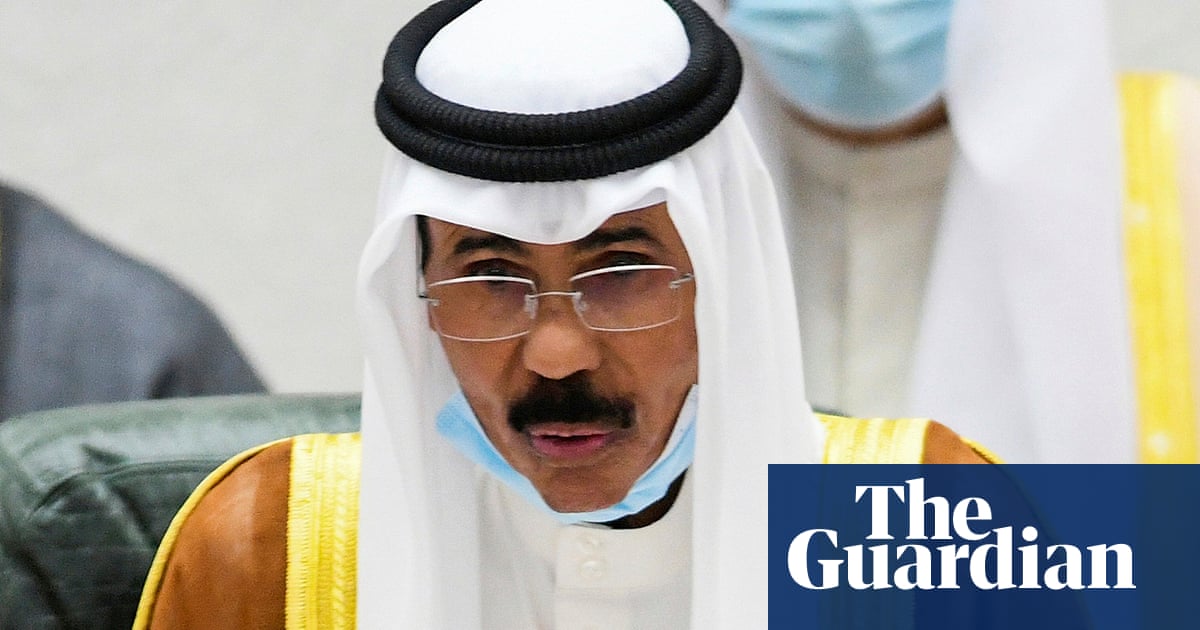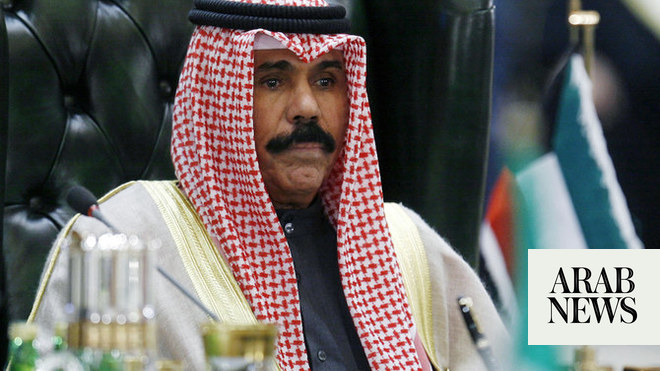
Kuwait’s emir, Sheikh Sabah al-Ahmad al-Sabah, the architect of the nation’s modern foreign policy and one of the region’s most influential voices, has died at the age of 91.
The monarch died on Tuesday at the Mayo clinic in Rochester, Minnesota, where he had been recovering after surgery in July. His body was being flown to Kuwait for burial.
His half-brother, Crown Prince Sheikh Nawaf al-Ahmad al-Sabah, will be sworn in as his successor late on Wednesday.
Sabah had ruled the since 2006 and steered its foreign policy for more than 50 years.
“With the utmost sadness and grief for the Kuwaiti people, the Islamic and Arab world and people of friendly nations, the Amiri Diwan [the royal palace] mourns the death of Sheikh Sabah al-Ahmad al-Jaber al-Sabah, the emir of Kuwait,” his office said.
Speculation over the succession started swirling soon after state television interrupted broadcasting to play verses from the Qur’an – a sure sign of a death within the ruling family. The announcement soon followed, and the country’s military was deployed to the streets of Kuwait City as a precautionary measure.
Analysts said there were likely to be intense negotiations behind the scenes over who will become the country’s next crown prince.
There had been calls from within Kuwait’s leading families for a generational shift, introducing a younger figure to lead the state.
“Kuwaitis are … wondering who a future Emir Nawaf would choose to be his crown prince. The country’s constitution dictates that each new crown prince must be approved by a majority in the National Assembly, so the candidate needs to have strong relations with assembly members,” said a recent Carnegie Endowment For International Peace report in August.
Sabah had positioned himself and the country as both sure-footed and cautious at a time of upheaval and change around the region.
He was instrumental in a strategic alliance with the US that followed Iraq’s 1990 invasion of Kuwait. The oil-rich state had also supported the 2003 US invasion of its northern neighbour, and maintained close ties with the UK.
Over recent decades he had been regarded as one of the last of the region’s old guard figures and had used his status to try to moderate on disputes such as the standoff between Qatar and the GCC states, led by Saudi Arabia and the UAE.
He had also attempted to mediate on the Yemen war, hosting leaders from both sides of the conflict, and had chaired aid conferences to support victims of the Syrian war.
Sabah was rankled by the more forceful approach of Saudi Arabia’s heir to the throne, Mohammed bin Salman, and related more to the crown prince’s father, King Salman, with whom he shared a closer view on issues such as the Israeli-Palestinian conflict.
Sabah had been opposed to recent peace deals with Israel signed with the UAE and Bahrain, which were made despite a 2002 framework that had been seen as a blueprint for broad Arab recognition, and offered few concessions to the Palestinians.
As late as this summer, he had told other regional leaders that Kuwait would be the last state to follow suit outside an agreed formula for a two-state solution.
His death prompted an outpouring of grief in the Arab world and beyond.
“With the departure of Sheikh Sabah, we lose a wise leader who devoted his life to the service of his country and to Arab and Islamic nations,” the Saudi foreign minister, Prince Faisal bin Farhan, wrote on Twitter.
“The emir was a man of profound compassion, humanity and dignity who all his life worked tirelessly for the best interests of his country and the region,” said the former UK prime minister Tony Blair. “He was deeply respected across the Middle East. He showed courage at the time of the invasion of Kuwait and wisdom in rebuilding his nation afterwards.”









